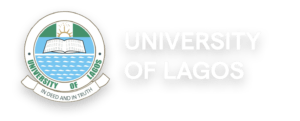“Fingerprinting the Sources of Phosphorus for Effective Management of Eutrophication in Coastal Waters of Lagos State” formed the thrust of a TETFund Stakeholders’ Forum organised by the Department of Chemistry on Wednesday, February 8, 2023, at the Faculty of Science Boardroom.
The Tertiary Education Trust Fund (TETFund) NRF-funded project which was spearheaded by Principal Investigators, Distinguished Prof. Babajide Alo, FAS and Prof. Kehinde Olayinka, commenced in 2019 and ended in 2020.

The Dean of the Faculty of Science, Prof. Elijah Oyeyemi, who doubled as the representative of the Vice-Chancellor, Prof. Folasade Ogunsola, FAS, in his welcome address, acknowledged the fact that the Department of Chemistry is blessed with a lot of mentors, especially Distinguished Prof. Alo. He advised that other Departments in the Faculty, emulate the Department.
Distinguished Prof. Alo, in his address, stated that the stakeholders’ forum was organised to create awareness about the research project as well as share its findings and impacts on the socio-economy of Lagos, with members of the University community. He noted that the Lagos lagoon continues to sustain means of livelihood in the state.

Giving an overview of the project, Distinguished Prof. Alo disclosed that the wastes from human activities on land usually end up being washed into coastal waters, thus leading to eutrophication, which is the over-fertilization of surface water by the washing of nutrients into the water.
He also disclosed that the general objective of the research was to identify the sources of the weed-inducing nutrients, such as phosphorus, in Lagos coastal waters. He highlighted the specific objectives; short-term and long-term goals and the impact of the project.
Research Presentations
The event later dovetailed into a Stakeholders’ forum proper which featured four presentations from sections of the entire project.
The first presentation was on “Influence of Phosphorus on eutrophic status of Lagos coastal waters”. It was delivered by Ph.D. student and Analytical/Environmental Chemist, Mrs. Folake Echebiri. She revealed that coastal waters are one of the most productive ecosystems with diverse resources worldwide, and one of the most threatened as a result of human activities, which lead to nutrient flow into these waters.
Mrs. Echedebiri disclosed that studies have shown that phosphorus and nitrogen are the limiting nutrients in surface waters globally, while phosphorus is that for Lagos coastal waters. She noted that eutrophication occurs when total phosphorus level is >0.04mg/l in surface waters.

She also spoke about the effects of eutrophication, some of which include: alteration of the ecosystem, wherein there is elimination of indigenous fishes, increased fish and shellfish mortality, aesthetics of the waters is affected by floating dead fish and algal bloom (which occurs as a result of decomposition of algae, as well as socio-economic impact of these who depend on the waters as a source of livelihood, for example, fishing, tourism, etcetera.

The second presentation was on “Micronutrients and their roles in eutrophication of surface waters”, was made by another Ph.D. student and Analytical/Environmental Chemist, Mr. Rotimi Oyebisi. He pointed out the various micronutrients found in surface waters, and paid special attention to silicon.
The study, according to Mr. Oyebisi, also confirmed a comparatively higher level of silicon at some of the sampling stations, that is Odo-Iyalaro; Ogun River and Badagry stations respectively, due to some of human activities such as sand dredging, metropolitan road run-offs, etc, which in turn lead to the growth of eutrophication agents – phytoplankton on the surface of the lagoon.

The third presentation was on “Phytoplankton Composition and Distribution along Lagos Lagoon”. It was delivered by a Ph.D. student in Marine Biology/Phycology, Mrs. Oghogho Eleshin, who discussed extensively the composition and distribution of phytoplankton in the Lagos coastal waters based on the study during each season.

The last presentation was delivered by Socio-economist from the Department of Geography, Dr. Amidu Ayeni who spoke on “Report of Socio-economics and Focus Group Discussion (FGD)”. He gave a comprehensive review of the challenges faced by artisanal fishermen as well as the socio-economic impact of eutrophication on them.

The Forum was rounded up with the second Principal Investigator, Prof. Kehinde Olayinka, discussing the impact of the entire project. She noted that some of the sites studied were polluted and contained a lot of phosphorus and silicon. She also shed more light on eutrophication, its effects and recommended that: Government and industries should install sewage treatment plants to remove phosphorus in the Lagos water. Prof. Olayinka also wants Government to speak to the Standard Organisation of Nigeria (SON) to take a look at removing phosphates in detergents, seeing as wastewater from washing with detergents usually find their way to sewers; and for Government to remove/harvest water hyacinth from the waters to ease water transportation.
Conclusion

Deputy Vice-Chancellor, Management Services, Prof. Lucian Chukwu, appreciated the Distinguished Professor Babajide Alo for inviting the University community to the stakeholders’ forum, and teaching the University community to abide by research ethics. He stressed the need for more interdisciplinarity in research, noting that researches carried out in such manner are encompassing and have a greater impact on the society.

Some artisanal fishermen were also present at the forum. A representative spoke about their challenges and pleaded with government to place a ban on flying boats plying the waters at night as well as soil dredging which drives fishes deep into the waters away from reach.











